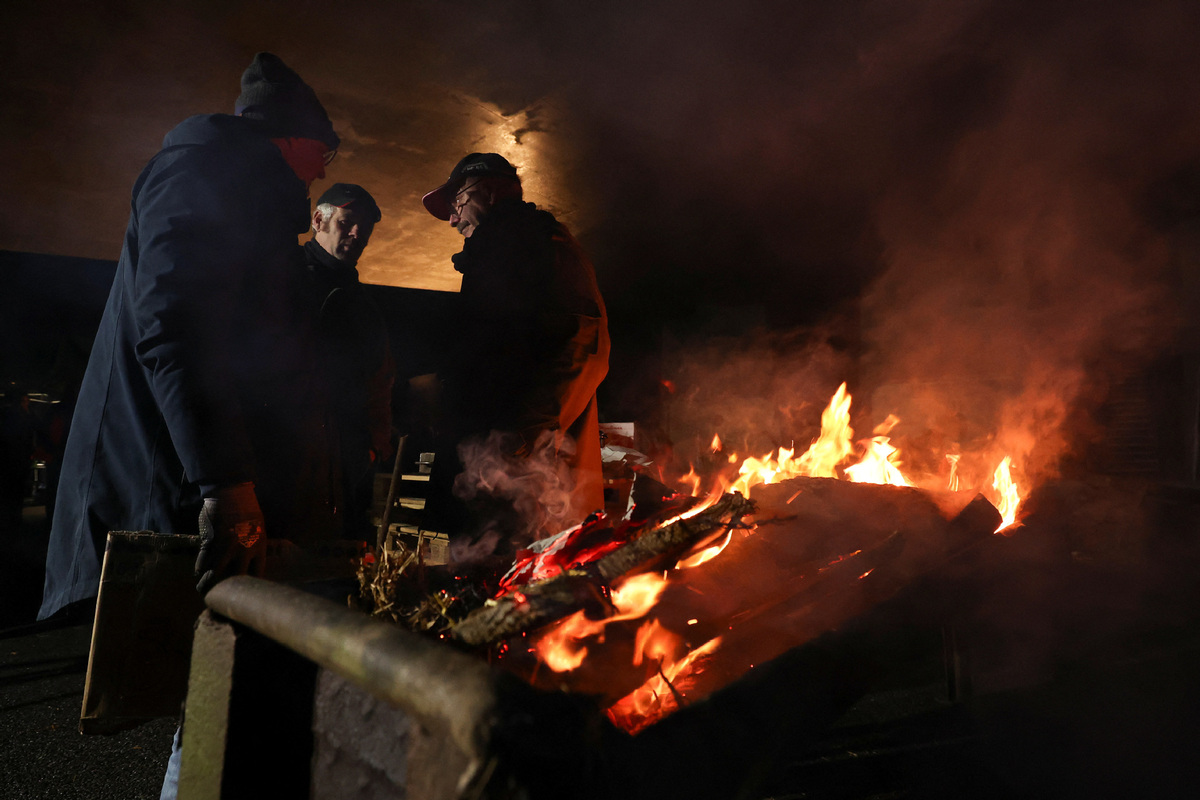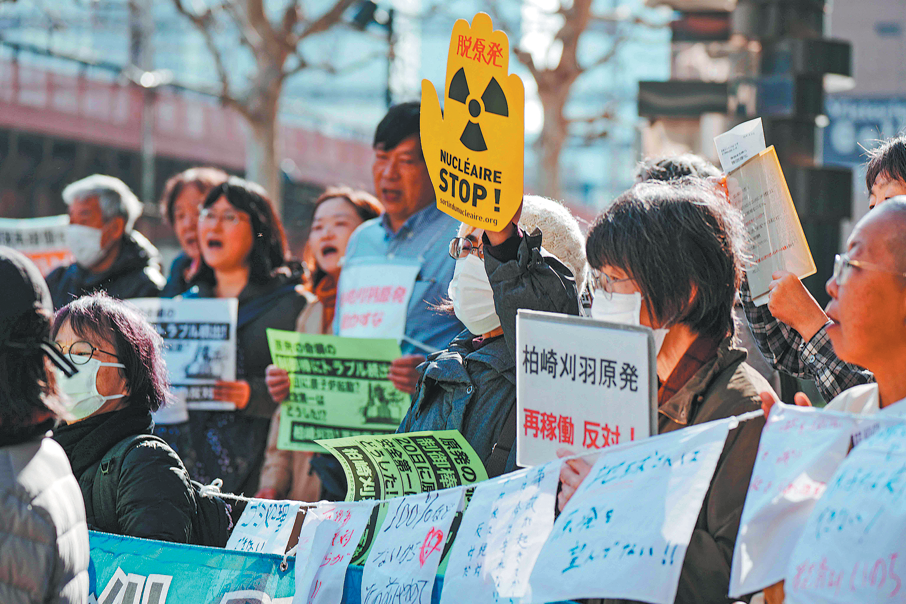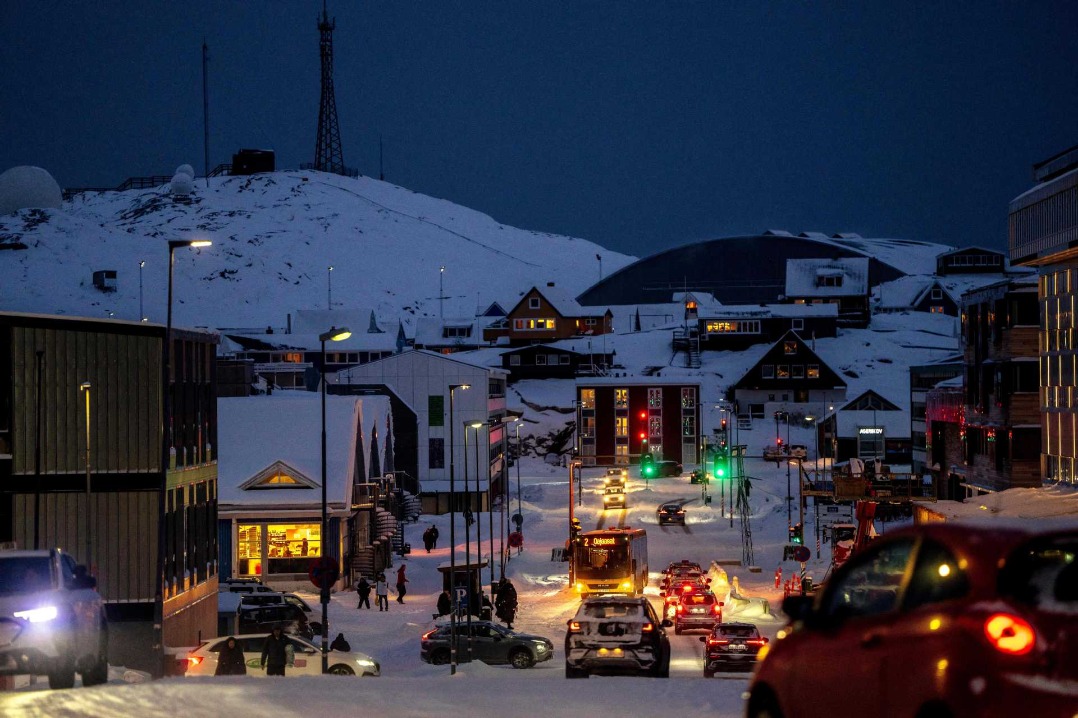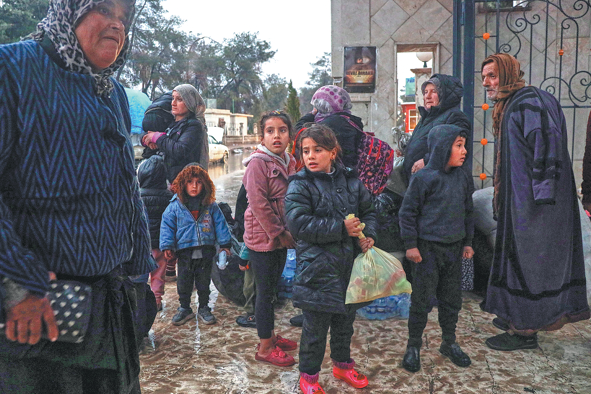French farmers call on govt for more support


Farmers in France, led by the National Federation of Farmers Unions (FNSEA) and the Young Farmers (JA), are intensifying their ongoing protests, with plans for a "Paris blockade" on Friday.
Arnaud Rousseau, president of the FNSEA, warned through a news release on Thursday that the action will continue until the government provides farmers with more support, because "mere words won't satisfy us".
The protesters have called for increased financial support from the government, to offset expenses incurred by meeting new European Union environmental regulations.
Rousseau said: "Once farmers start, they won't back down."
At a strategic meeting on Thursday, Ursula von der Leyen, president of the European Commission, emphasized the importance of dialogue in tackling "polarization" within the European Union's agri-food sector.
She highlighted the necessity of having a balanced approach to addressing farmers' concerns while promoting Europe's transition to a greener future.
EU regulations have proven costly for farmers looking to comply with new standards for land use, water management, pesticide use, and animal welfare, which aim to protect natural resources and public health.
France's Prime Minister Gabriel Attal has committed to easing bureaucratic hurdles for farmers amid the mounting discontent.
According to a report by French TV channel TFI on Thursday, he was set to meet with farmers on Friday. Sources close to him indicated that initial announcements addressing farmers' concerns were expected during the meeting.
Attal also had a meeting with representatives from the two influential agricultural unions on Monday evening.
The French government, acknowledging farmers' worries, said it intends to provide updates "in the coming days", according to government spokeswoman Prisca Thevenot, who reassured the public on Wednesday there are "no plans to halt" the blockades.
Following a Council of Ministers meeting, Thevenot stated: "The government is committed to safeguarding the French agricultural model, ensuring farmers can earn a decent livelihood."
Tragic deaths
On Tuesday, near Pamiers in the Ariege region of France, a protest turned tragic when a car crashed into a family taking part as they sheltered under a tent near the motorway. Alexandra Sonac, 35, died instantly, and her 12-year-old daughter died later that evening. Her 40-year-old husband, Jean-Michel, was seriously injured.
Law enforcement officers secured the area, and shocked demonstrators kept journalists away before silently departing along with their tractors.
"The farming community will organize a white march on Saturday, starting from the Agricultural High School in Pamiers," said Sebastien Durand, mayor of Saint-Felix-de-Tournegat, to newspaper Sud-Ouest. "A banner and flowers will be placed near the site of the accident."
The Europe-wide protests, which originated in the Netherlands in June 2022, have also been seen in Bulgaria, Hungary, Poland, Romania, and Slovakia.
The latest agricultural protests from Toulouse to Berlin have also reached Brussels, the EU's headquarters, where farmers have expressed discontent over bureaucratic interference, citing the European Green Deal and increased diesel taxes.
That discontent, paired with inflation and competition from cheap Ukrainian imports after the EU suspended their customs duties after the start of the Russia-Ukraine conflict in 2022, has fueled significant protests in Germany.
Additionally, convoys of tractors that blocked roads in Germany have been used to protest proposed tax increases on agricultural diesel.
The transnational unrest has political weight within the EU, and could potentially impact the upcoming European Parliament election.
A European Commission study suggests the European Green Pact could decrease agricultural production by between 5 percent and 15 percent, which critics say could lead to additional imports from countries with lower standards.
Franck Pouillot, general secretary of the FNSEA in Yonne, France said on Thursday he was concerned about the impact imports could have on the bloc, according to the Paris-based Les Echos newspaper.
French historian Edouard Lynch, told Public Senat, the TV station for the French Senate, on Jan 19 that environmental issues are driving a wedge between farmers and the European Union, which is perceived by them as anti-farming.
He said the dynamic is relatively new.
"If we put things into perspective, we could say that farmers are now undergoing what European industry underwent with the liberalization of the market," he said. "Until now, governments have protected farmers for electoral reasons. But their numbers are dwindling. And for them to have their exceptional status called into question is unbearable."































